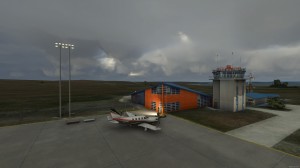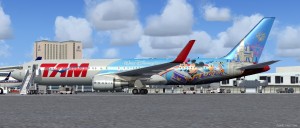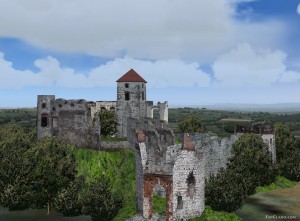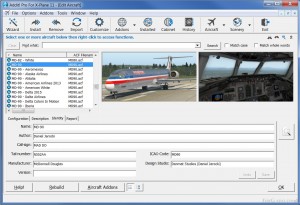Textures Only
CFS Macro Opel Blitz Ambulance. CFS Version of a WWII ground vehicle. The Opel Blitz was a 3 ton, 4x2 & 4X4, german truck, that saw service in World War II and post-war. This ambulance version, carrying the standard Sanitats-koffer, equipped as Field Surgery Room, and shows two macros, as half-truck or wheeled version. The 1920s was a decade of expansion for the American firm of General Motors (GM). In 1929, GM acquired the motor firm Adam Opel AG, based in Russelsheim, Germany, and with it, one of the most well regarded manufacturing plants in Europe. In the early 1930s, Opel introduced a fast light truck it called the Opel Blitz (lightning) and in 1935 opened the best and most modern truck factory in the world in Brandenburg. Although light in weight, the Blitz design could carry a c
Show more... onsiderable payload. A proven six-cylinder engine from another GM company, Buick, provided the power. The Blitz evolved over the decade. The payload increased in steps from the original 1. 75 tonnes to 2. 5 tonnes, and finally to the three tonnes that the S type could transport cross-country. German authorities were leery of Opel and did not entirely trust its American management, but coveted the company s reliable, tough, and easily maintained vehicles. To solve its dilemma, the German government took control of the Opel factory in 1940. GM would only regain control in November 1948. By war s end, Opel factories had churned out over 100, 000 Blitz trucks alone for the German war effort. These took many different forms, such as general-purpose trucks, buses, radio trucks, ambulances, and even large limousines for high-ranking officers. In 1943 Daimler-Benz commenced building Blitzs under licence in favor of its own comparably designed L3000 3-ton truck. The Blitz proved far superior to any of its competitors. It could go where no other two-wheel drive vehicles could, it was the most reliable and toughest of all German trucks in its class, and, best of all, Opel s excellent production facilities kept spares flowing that kept the Blitz going. The gasoline engines also provided an advantage gasoline was easier to obtain than the diesel fuel required by other trucks. Studies carried out by German forces in regions such as North Africa and Russia gave the Blitz glowing reports while slighting vehicles such as the Mercedes and NSU. The Opel Blitz remained a major type for many years. The 3-ton Opel-Blitz continued in production well past the end of the war and in its S-Type form became the mainstay of post-war German commercial transport. The Blitz served on all fronts, and it was fitted with many different body types. Sheet metal shortages dictated that Mercedes-Benz produced its L. 701 licensed version of the Opel-Blitz with a standardized wooden cab, officially called Einheits-Fahrerhaus. The A type Blitz, a four-wheel-drive version, entered service in 1940 (over 25, 000 built) and a half-track version entered production in 1942 as the Opel Maultier (mule). Approximately 4, 000 Maultiers were built. (Source. Fiddlersgreen. net) I have created this api macro with Easy Object Designer (EOD), Version 2. 0. 47 (Matthias Br ckner), to generate two static Opel Blitz Ambulance, used by Wehrmacht on WWII. This macro was tested only in CFS1 sceneries, but I believe that can work without problems in CFS2-3 and FS2000-2002. All mine API macros, could be included on objects libraries with crash detection (for CFS missions), but must be distributed with the original API-MACRO copyright. Edmundo Abad Santiago-Chile
Show less...








